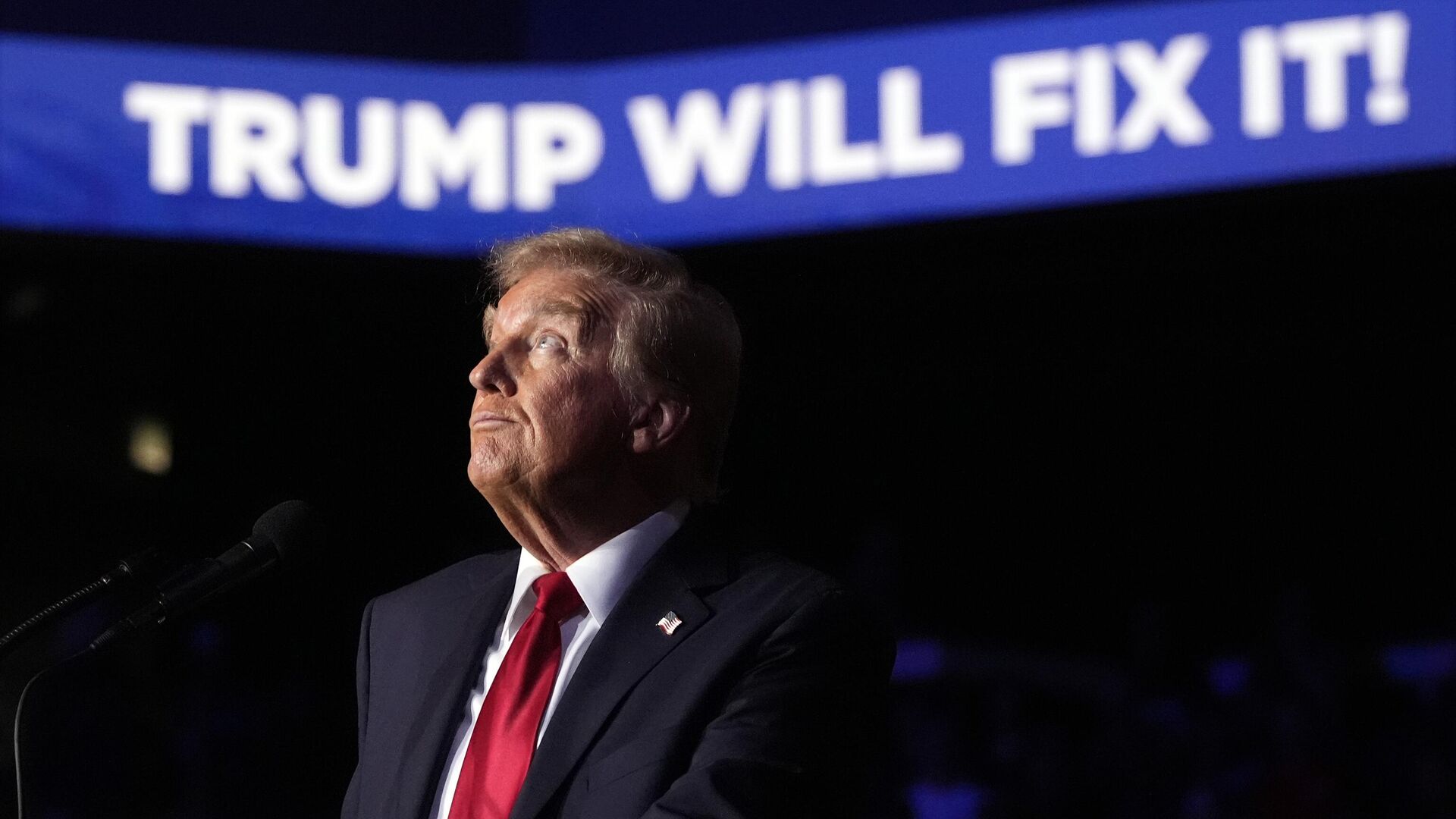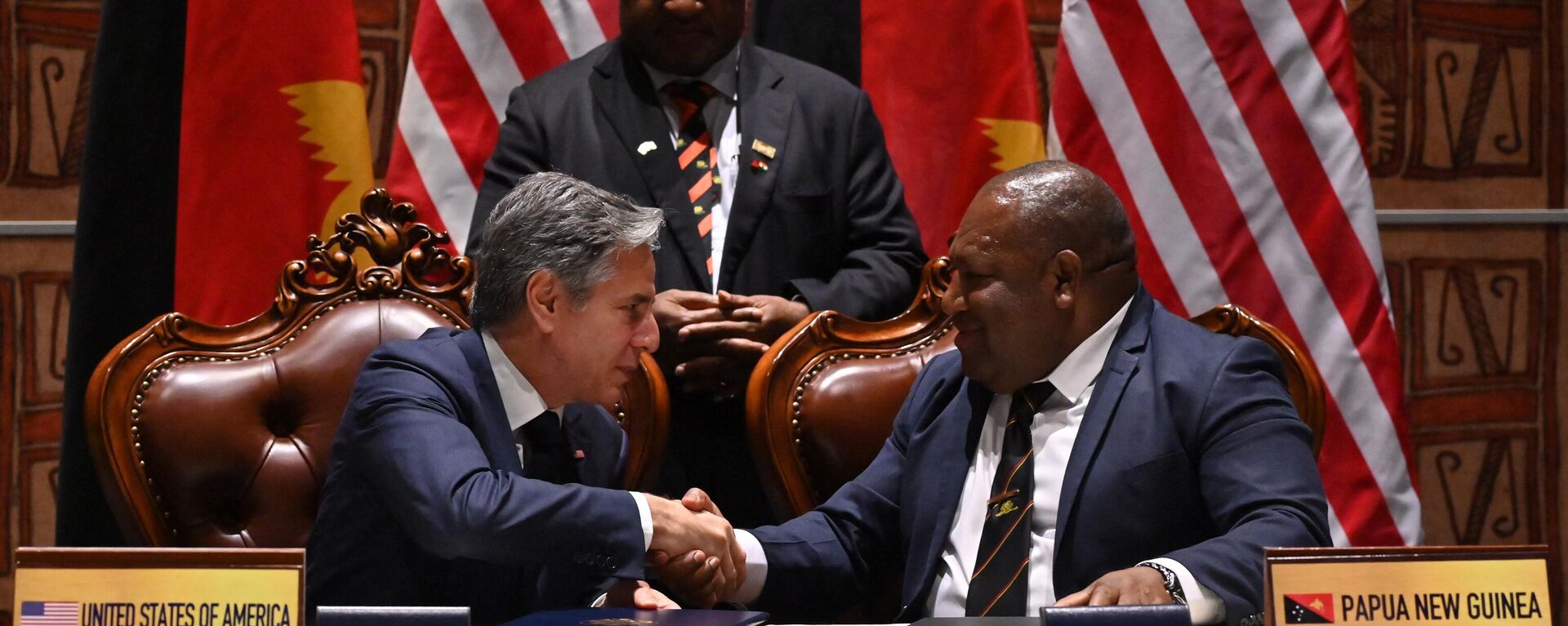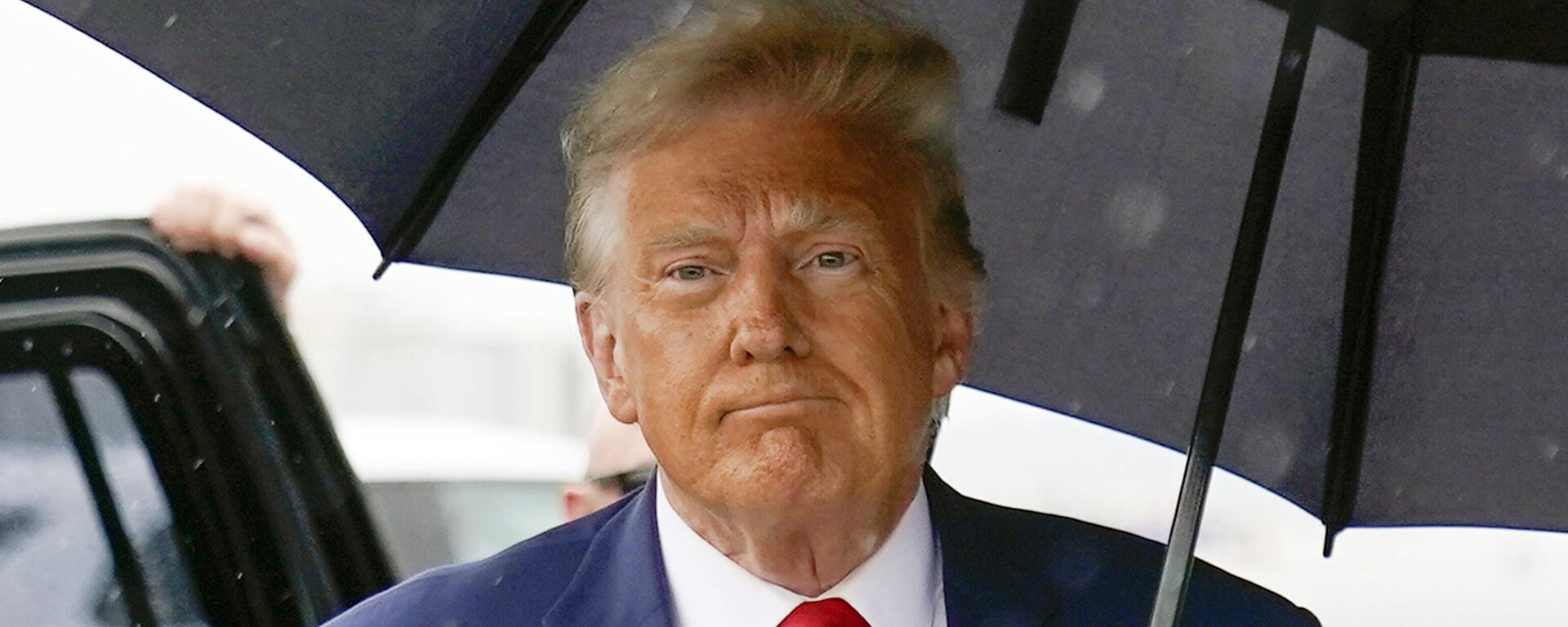https://sputnikglobe.com/20241106/trumps-election-win-how-will-it-change-the-world-1120758368.html
Trump’s Election Win: How Will It Change the World?
Trump’s Election Win: How Will It Change the World?
Sputnik International
Donald Trump prevailing over Kamala Harris will most likely mean redirection of Washington’s policies on a whole array of pressing issues, ex-Pentagon analyst Michael Maloof told Sputnik.
2024-11-06T10:59+0000
2024-11-06T10:59+0000
2024-11-06T10:59+0000
analysis
us
donald trump
kamala harris
foreign policy
domestic policy
korean peninsula
denuclearization
nato members
https://cdn1.img.sputnikglobe.com/img/07e8/0b/03/1120757510_0:0:3074:1730_1920x0_80_0_0_802ccc28d7c5ae597cb6ef9daa555865.jpg
Speaking to Sputnik, Michael Maloof, a former senior security policy analyst in the Office of the US Secretary of Defense, gave his thoughts on how America’s domestic and foreign policy could change following Donald Trump’s reelection.Americans Want Change The fact that Americans voted for Donald Trump is "a clear sign that they want change from the last four years" of the Biden-Harris administration, Maloof said.He added that Vice President J.D. Vance "will certainly implement those policies as well and will probably be given a lot of tasks once they take office for the implementation of a lot of these policies.""So we're going to see; we're hoping to see the best," which Maloof said would come amid "tremendous resistance" due to "the bureaucracy of the US government."The state of the US economy has become the top issue of the election race, with experts warning about inflation, housing prices, and risks associated with America’s $35.7 trillion federal debt.What Does Trump's Victory Mean for US Foreign Policy?On Ukraine, "It's clear to me that [Donald Trump] does not want to continue funding [the Zelensky regime]. He does not want to continue a proxy war. He doesn't want any wars because during his first administration, there were no wars. And this is one of the dramatic things that people don't realize - as opposed to the Biden administration - that we've poured hundreds of billions of dollars into war,” Maloof stressed."What we see now in terms of NATO being more of an offensive alliance as opposed to a defensive alliance, I think he's going to want to curb that. Because it's been this offensiveness by NATO that has gotten us into this mess with Ukraine," Maloof pointed out.The US has injected a total of over $61 billion in security aid to the Kiev regime since the Ukraine conflict escalated in February 2022. But the Pentagon’s own dwindling arms stockpiles have resulted in far smaller US aid packages in recent months. Russia has repeatedly warned against Western military aid to Ukraine, which Moscow says will only prolong the standoff.What Will Trump Do for Middle East?On Israel, Donald Trump may take a U-turn as compared to his previous term, Maloof said. He added that Trump has already been "somewhat critical of [Israeli Prime Minister [Benjamin] Netanyahu in terms of continuing this war [in Gaza and Lebanon] endlessly."Trump is going to look more towards Saudi Arabia, as the kingdom is now insisting on a two-state solution in exchange for normalizing relations with Israel and reactivating the Abraham Accords, according to the analyst.A recent report for Brown University’s Costs of War project claimed that the US had spent a record of at least $17.9 billion on military aid to Israel since the Jewish state unleashed a war against the Palestinian militant group, Hamas, in Gaza more than a year ago.What Will Trump's Asia-Pacific Policies Be?With regard to the US’ Asia policy, Trump may "try to reactivate his relationship with Kim Jong Un to try to get the North Korean leader to back down on any further testing," Maloof said.He stressed that the international community was "almost on the precipice" of denuclearization of the Korean Peninsula during the Trump administration."I think one way you do that is to stop all further US-South Korean military exercises, which North Korea views as a provocation. And I think that if that's diminished, then there's a basis for discussion. I think China would probably welcome that as well," Maloof noted.This comes amid the ongoing militarization of the Asia-Pacific by the US, which clinched a deal with the UK and Australia in 2021 to establish the AUKUS military bloc. Moscow says that such a militarization has "an obvious focus on containing China and Russian interests in the region." What Awaits NATO?Trump may "be much more stringent" toward NATO members and "insist that they increase their allotments to it or pull out," the former Pentagon analyst argued.According to him, Trump will "begin to cut back on NATO", which he said is going to "potentially fracture under a Trump administration and become much more regional in nature.""There will be far less US encouragement for NATO to survive and thrive than it had under the Biden-Harris administration," the analyst concluded.Moscow has repeatedly warned NATO against its eastward expansion, which the Kremlin says could further inflame tensions in Europe. Russian President Vladimir Putin slammed NATO for making empty promises about its commitment not to expand eastward since 1991.
https://sputnikglobe.com/20241027/trump-vs-harris-what-lies-ahead-for-ukraine-and-russia-nato-relations-after-us-election-1120689311.html
https://sputnikglobe.com/20241027/trump-vs-harris-will-it-make-any-difference-to-china-middle-east-1120689873.html
https://sputnikglobe.com/20230529/russia-warns-of-asia-pacific-militarization-after-us-papua-new-guinea-sign-defense-pact-1110782233.html
https://sputnikglobe.com/20240711/trump-eyeing-limiting-intel-sharing-with-nato-allies---reports-1119335795.html
korean peninsula
Sputnik International
feedback@sputniknews.com
+74956456601
MIA „Rossiya Segodnya“
2024
Oleg Burunov
https://cdn1.img.sputnikglobe.com/img/07e4/09/0b/1080424846_0:0:2048:2048_100x100_80_0_0_3d7b461f8a98586fa3fe739930816aea.jpg
Oleg Burunov
https://cdn1.img.sputnikglobe.com/img/07e4/09/0b/1080424846_0:0:2048:2048_100x100_80_0_0_3d7b461f8a98586fa3fe739930816aea.jpg
News
en_EN
Sputnik International
feedback@sputniknews.com
+74956456601
MIA „Rossiya Segodnya“
Sputnik International
feedback@sputniknews.com
+74956456601
MIA „Rossiya Segodnya“
Oleg Burunov
https://cdn1.img.sputnikglobe.com/img/07e4/09/0b/1080424846_0:0:2048:2048_100x100_80_0_0_3d7b461f8a98586fa3fe739930816aea.jpg
america’s domestic and foreign policy, donald trump’s reelection, the previous trump administration, funding of the zelensky regime, the biden administration, redirection in foreign policy, denuclearization of the korean peninsula
america’s domestic and foreign policy, donald trump’s reelection, the previous trump administration, funding of the zelensky regime, the biden administration, redirection in foreign policy, denuclearization of the korean peninsula
Trump’s Election Win: How Will It Change the World?
Donald Trump prevailing over Kamala Harris in the November 5 US presidential election will most likely mean a redirection of Washington’s policies on a whole array of pressing issues, ex-Pentagon analyst, Michael Maloof, told Sputnik.
Speaking to Sputnik, Michael Maloof, a former senior security policy analyst in the Office of the US Secretary of Defense, gave his thoughts on how America’s domestic and foreign policy could change following Donald Trump’s reelection.
The fact that Americans voted for Donald Trump is "a clear sign that they want change from the last four years" of the Biden-Harris administration, Maloof said.
"The American people now have a chance to compare what life was like under the previous Trump administration, although they were concerned about his little personality quirks. But the policies were solid, and they benefited much, much more," the ex-Pentagon analyst pointed out.
He added that Vice President J.D. Vance "will certainly implement those policies as well and will probably be given a lot of tasks once they take office for the implementation of a lot of these policies."
"This bringing in (of) Elon Musk will see to how you change government in a way that you whittle it down to save money. Musk has already said he sees the potential for saving $2 trillion a year. That's incredible. We have about a $6 trillion budget deficit every year. And if you can carve out $2 trillion, that really cuts into the deficit," Maloof pointed out.
"So we're going to see; we're hoping to see the best," which Maloof said would come amid "tremendous resistance" due to "the bureaucracy of the US government."
The state of
the US economy has become the top issue of the election race, with experts warning about inflation, housing prices, and risks associated with America’s $35.7 trillion federal debt.
What Does Trump's Victory Mean for US Foreign Policy?
On Ukraine, "It's clear to me that [Donald Trump] does not want to continue funding [
the Zelensky regime]. He does not want to continue a proxy war. He doesn't want any wars because during his first administration, there were no wars. And this is one of the dramatic things that people don't realize - as opposed to the Biden administration - that we've poured hundreds of billions of dollars into war,” Maloof stressed.
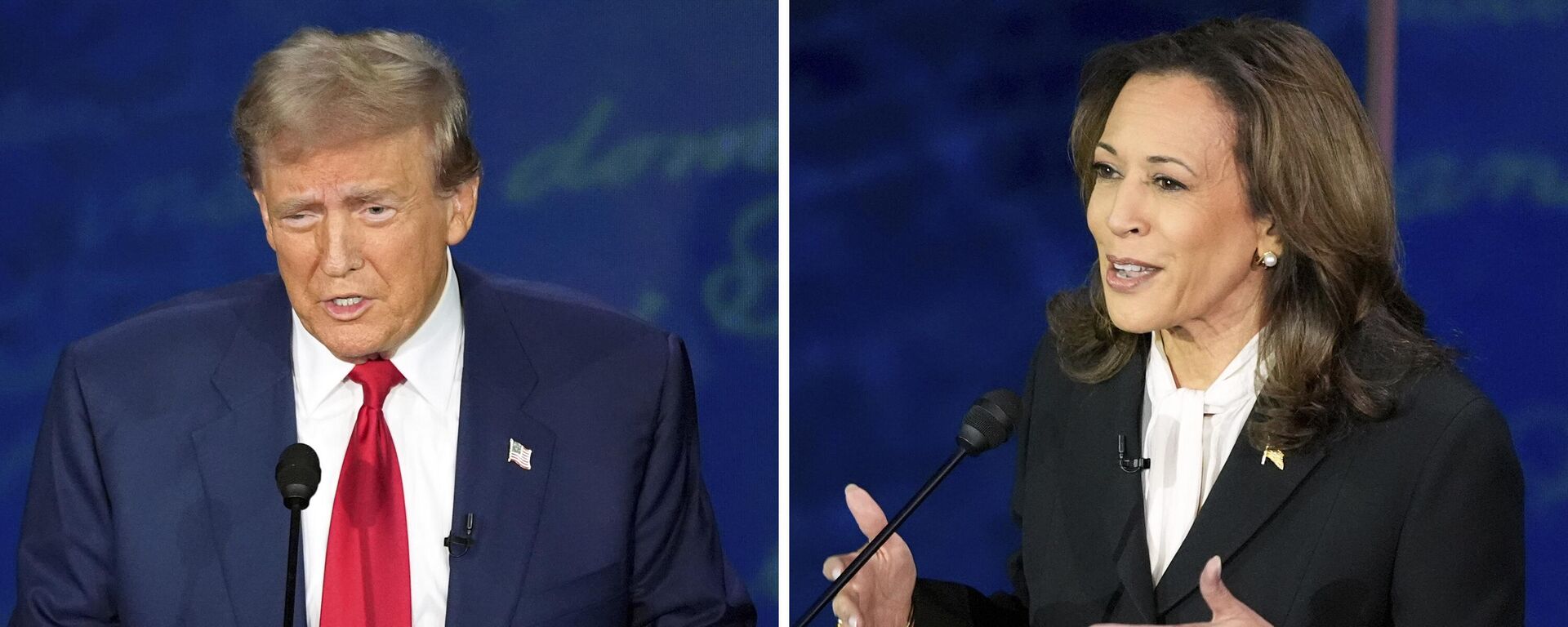
27 October 2024, 12:13 GMT
He did not exclude Trump having "a new perspective on NATO", suggesting that "begrudgingly, he'll [Trump] probably keep the structure, but he's going to put more requirements on the members and be much more definitive with them in terms of responsibilities."
"What we see now in terms of NATO being more of an offensive alliance as opposed to a defensive alliance, I think he's going to want to curb that. Because it's been this offensiveness by NATO that has gotten us into this mess with Ukraine," Maloof pointed out.
The US has injected a total of over $61 billion in
security aid to the Kiev regime since the Ukraine conflict escalated in February 2022. But the Pentagon’s own dwindling arms stockpiles have resulted in far smaller US aid packages in recent months. Russia has repeatedly warned against Western military aid to Ukraine, which Moscow says will only prolong the standoff.
What Will Trump Do for Middle East?
On Israel, Donald Trump may take a U-turn as compared to his previous term, Maloof said. He added that Trump has already been "somewhat critical of [Israeli Prime Minister [Benjamin] Netanyahu in terms of continuing
this war [in Gaza and Lebanon] endlessly."
"[Trump] has recently said to Netanyahu, get this done, finish it, stop the fighting, and come to terms. And if he doesn't, then I think he's going to have to undertake a different approach, whereas in his first administration, he was very supportive of what Netanyahu wanted. He gave the Israelis everything they wanted," the ex-Department of Defense analyst pointed out.
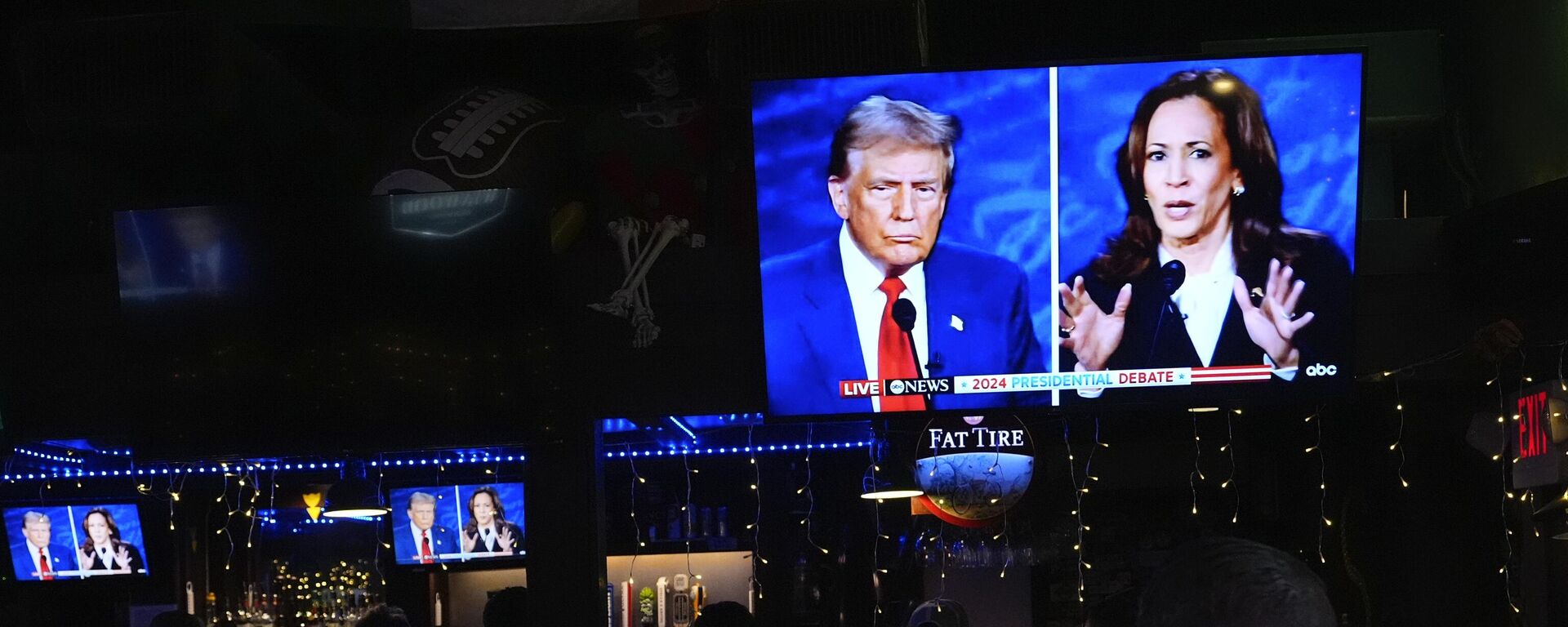
27 October 2024, 16:05 GMT
Trump is going to look more towards Saudi Arabia, as the kingdom is now insisting on
a two-state solution in exchange for normalizing relations with Israel and reactivating the Abraham Accords, according to the analyst.
“This is going to mean a redirection in foreign policy. It's going to mean less emphasis on what Israel wants and perhaps more on what the Gulf Arab countries might want,” Maloof emphasized.
A recent report for Brown University’s Costs of War project claimed that the US had spent a record of at least $17.9 billion on military aid to Israel since the Jewish state unleashed a war against the Palestinian
militant group, Hamas, in Gaza more than a year ago.
What Will Trump's Asia-Pacific Policies Be?
With regard to the US’ Asia policy, Trump may "try to reactivate his relationship with Kim Jong Un to try to get the North Korean leader to back down on any further testing," Maloof said.
He stressed that the international community was "almost on the precipice" of
denuclearization of the Korean Peninsula during the Trump administration.
"I think one way you do that is to stop all further US-South Korean military exercises, which North Korea views as a provocation. And I think that if that's diminished, then there's a basis for discussion. I think China would probably welcome that as well," Maloof noted.
This comes amid
the ongoing militarization of the Asia-Pacific by the US, which clinched a deal with the UK and Australia in 2021 to establish the AUKUS military bloc. Moscow says that such a militarization has "an obvious focus on containing China and Russian interests in the region."
Trump may "be much more stringent" toward
NATO members and "insist that they increase their allotments to it or pull out," the former Pentagon analyst argued.
Trump will want to make NATO "less aggressive in terms of being offensive in nature, as they've demonstrated in Ukraine, because it's absolutely wrecked the economy of Europe. So the Europeans now have come to realize that, and they're paying the consequences. And they do blame the United States for leading them in this direction in the first place," Maloof said.
According to him, Trump will "begin to cut back on NATO", which he said is going to "potentially fracture under a Trump administration and become much more regional in nature."
"There will be far less US encouragement for NATO to survive and thrive than it had under the Biden-Harris administration," the analyst concluded.
Moscow has repeatedly warned NATO against its
eastward expansion, which the Kremlin says could further inflame tensions in Europe. Russian President Vladimir Putin slammed NATO for making empty promises about its commitment not to expand eastward since 1991.
